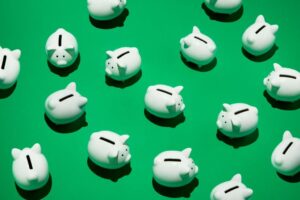Personal finance is really the overall financial management that a family or an individual performs on a day-to-day basis, with regards to budgeting, saving, and spending money, taking into consideration different long-term financial risks and potential future life changes. The term is generally used by many people and in many different contexts. In a broad sense, it refers to the discipline of managing one’s own money. This could also refer to a person’s attitude towards money and his or her financial affairs. In this article, we will explain personal finance and what it actually is.

First of all, personal finance means setting up a realistic budget. This means that the way you spend your money will be determined by how you earn it since spending on things you get from work will have direct effects on your income. A big part of budgeting is identifying the purpose of your spending, which could include saving for retirement, paying for children’s education, or funding home improvements. The purpose of these expenditures should guide your spending and help you determine where to cut corners and what to invest in.
Another aspect of personal finance is managing your money in a manner that you can actually afford. For example, saving for a down payment on a house or other major purchases may seem like a good idea at the moment, but if you can’t afford to make the down payment, you aren’t really saving. Investing in long-term bonds may not seem like a prudent financial move if you currently make ends meet, but if you can secure low-risk investments that have the potential to grow over time, you are still making a wise investment. Allocating some of your income to savings or investing for retirement is another useful technique for managing your finances.
Another key aspect of personal finance is financial planning. You must set aside a portion of your income for investing, saving, and spending. When setting aside money for saving, don’t simply take whatever is put into a savings account. Rather, use your money to purchase items that will increase your lifestyles, such as a new home or car.
One aspect of managing your finances is determining whether you have sufficient income to support personal finance activities. In order to determine this, you should calculate your current expenses, including housing, food, gasoline, entertainment, and other miscellaneous expenses. Then divide this total by your annual income. Remember, the difference between your annual income and your current expenses should be able to cover the bulk of your future living expenses. This financial planning process will help you identify areas in which you can save money and invest in the future. Finally, setting aside money for investing or saving can also significantly reduce your expenses in the long run.
Regardless of how you choose to manage your personal finances, it is important to stick to your budget. Don’t allow yourself to fall behind on any of the bills. Remember, saving only enough for emergency purposes is not a wise financial planning process. By setting aside a portion of your income each month for savings and investing, you will be prepared for whatever life throws at you. This way you can enjoy the comforts of home have sufficient funds to support your family and avoid living from paycheck to paycheck.
An Example of Personal Finance?
You have probably been hearing a lot of talks recently about personal finance, but you may not know exactly what it is or what it refers to. There are actually two different types of personal finance, although the terms are often used interchangeably. The first type is defined as the habits and behaviors that you have developed over the course of your life that will guide you in how to handle your money. These habits and behaviors can be hard to change, but there is hope – many have changed their bad habits into good ones over the years. This second type of personal finance covers your investments, savings, and retirement accounts.

If you want to change your financial situation for the better, the first thing that you need to do is to decide why you are in this mess. Once you have identified your problem, start researching your options. There are many books on the market, as well as websites that can help you. You can also join a financial planning group so that you have the support that you need to make changes that you can live with. Most importantly, do not go into any new financial decisions blindly. Only take action when you are confident that you have done your research and can live with the new decisions.
When looking at your habits and behaviors as an example of personal finance, remember that you have to be disciplined. If you use credit cards on a regular basis, you need to stop. If you think that you can afford to buy a new house, but you have never held a loan before, you need to know that you might find yourself in debt in a few years if you don’t make smart financial decisions. Start researching financial possibilities now, and you will be out of debt in no time!








Leave a Comment